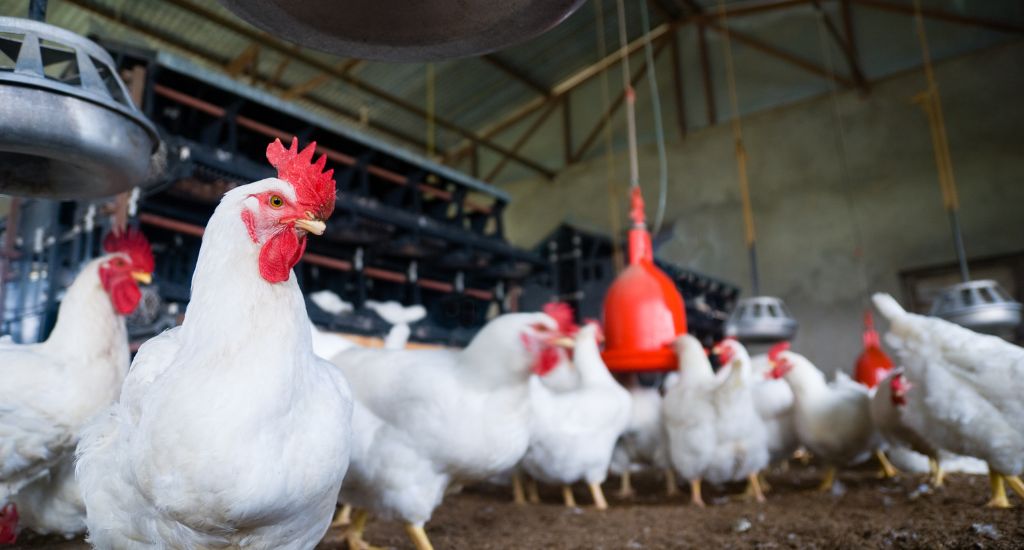Embarking on a poultry farming venture in Nigeria is a promising endeavor with the potential for profitability and sustainable agribusiness. This comprehensive guide is designed to provide aspiring poultry farmers with the knowledge and insights needed to start and manage a successful poultry business. From selecting the right poultry breeds to implementing effective marketing strategies, this guide covers every aspect of poultry farming in Nigeria, ensuring a solid foundation for your journey into this dynamic industry.
1. Understanding the Poultry Industry in Nigeria
a. Market Analysis
- Demand and Supply: Assess the demand for poultry products in your target market.
- Competitor Analysis: Identify existing poultry businesses and study their strengths and weaknesses.
b. Poultry Product Demand
- Eggs and Meat: Understand the market demand for both eggs and poultry meat.
- Value-Added Products: Explore the potential for selling processed poultry products.
c. Regulatory Compliance
- Livestock Regulations: Familiarize yourself with government regulations related to poultry farming.
- Biosecurity Measures: Implement biosecurity measures to prevent disease outbreaks.
d. Poultry Health Management
- Vaccination Programs: Develop a robust vaccination program to ensure flock health.
- Disease Prevention: Implement measures to prevent and control common poultry diseases.
2. Planning Your Poultry Farm
a. Business Plan Development
- Mission and Vision: Clearly define the mission and vision of your poultry business.
- Financial Projections: Develop realistic financial projections for your poultry farm.
b. Site Selection
- Accessibility: Choose a location with easy access to markets and suppliers.
- Environmental Considerations: Assess the environmental conditions for poultry farming.
c. Infrastructure Setup
- Chicken Coops: Design and construct suitable chicken coops for your chosen poultry breeds.
- Feeding and Watering Systems: Install efficient feeding and watering systems.
d. Equipment and Supplies
- Purchase Quality Equipment: Invest in reliable equipment for feeding, watering, and egg collection.
- Sourcing Feed: Establish relationships with reputable feed suppliers.
3. Selecting the Right Poultry Breeds
a. Layers vs. Broilers
- Egg Production vs. Meat Production: Choose between layers for egg production or broilers for meat.
- Hybrid vs. Indigenous Breeds: Consider the advantages and disadvantages of hybrid and indigenous breeds.
b. Chick Sourcing
- Hatcheries: Source day-old chicks from reputable hatcheries.
- Vaccination Records: Ensure chicks come with proper vaccination records.
c. Caring for Chicks
- Brooding Management: Provide optimal temperature and conditions during the brooding period.
- Feeding Protocols: Follow recommended feeding protocols for chicks.
4. Poultry Nutrition and Feeding
a. Balanced Diet
- Protein Requirements: Ensure poultry feed meets the protein needs of your flock.
- Supplemental Nutrition: Consider adding supplements for optimal health and productivity.
b. Feed Storage and Quality Control
- Proper Storage: Store feed in a dry and cool environment to prevent spoilage.
- Quality Assurance: Regularly check feed quality to avoid contamination and nutrient degradation.
c. Water Management
- Clean Water Supply: Provide a clean and uncontaminated water supply for your poultry.
- Watering Systems: Use efficient watering systems to minimize water wastage.
5. Health and Disease Management
a. Preventive Measures
- Biosecurity Practices: Implement strict biosecurity measures to prevent disease outbreaks.
- Vaccination Schedules: Adhere to vaccination schedules for common poultry diseases.
b. Identifying and Treating Common Ailments
- Symptom Recognition: Learn to identify symptoms of common poultry ailments.
- Consulting Veterinarians: Establish a relationship with a poultry veterinarian for timely interventions.
c. Record Keeping
- Health Records: Maintain detailed health records for each bird.
- Medication Logs: Keep a log of medications administered to the flock.
6. Egg and Poultry Meat Marketing Strategies
a. Branding Your Products
- Unique Selling Proposition (USP): Define what sets your poultry products apart.
- Branding Materials: Invest in quality packaging and branding materials.
b. Sales Channels
- Local Markets: Explore opportunities in local markets and communities.
- Wholesale to Retailers: Establish partnerships with retailers for wider distribution.
c. Online Presence
- Social Media Marketing: Leverage social media platforms for marketing your poultry products.
- E-commerce Platforms: Consider selling poultry products through online platforms.
d. Customer Engagement
- Customer Feedback: Encourage customer feedback for continuous improvement.
-
- Loyalty Programs:* Implement loyalty programs to retain customers.
7. Financial Management and Sustainability
a. Budgeting and Cost Analysis
- Operating Costs: Create a detailed budget covering feed, veterinary care, and other operational expenses.
- Profit Margins: Analyze profit margins and adjust pricing strategies accordingly.
b. Emergency Fund
- Financial Buffer: Maintain an emergency fund for unexpected expenses.
- Insurance Coverage: Consider insurance coverage for your poultry farm.
c. Scaling Your Poultry Business
- Expansion Plans: Develop a strategic plan for scaling up your poultry business.
- Diversification: Explore opportunities for diversification within the poultry industry.
In Conclusion
Starting a poultry business in Nigeria requires careful planning, dedication, and a commitment to best practices in poultry farming. By understanding the market, selecting the right breeds, implementing effective health management practices, and developing strong marketing strategies, you can position your poultry business for success. This comprehensive guide serves as a valuable resource for both novice and experienced poultry farmers, providing key insights and practical tips to navigate the challenges and reap the rewards of poultry farming in Nigeria. Embrace the opportunity to contribute to the country’s agribusiness sector, and let your poultry business soar to new heights of prosperity.
